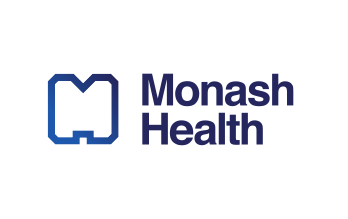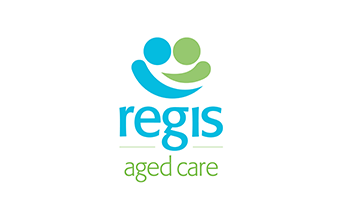Project Summary
Monash Health in partnership with Regis has been awarded an ARIIA grant for their project ‘Improving palliative and end-of-life care, for people living in residential aged care' by embedding specialty knowledge in hospital in-reach programs.
As a person advances to the final phase of life specialty palliative care provides symptom control, alongside psychological, social and spiritual support.(1,2) For residents of residential aged care facilities (RACF), palliative care is sometimes too late or not at all with significant variation of care. (3–5) Ideally, residents at end-of-life should be cared by community palliative care (CPC) services. Barriers exist to timely referral and access to CPC; for example, RACF staff and community providers lacking palliative care knowledge, result in poor identification of end-of-life needs. Barriers are further exacerbated by a complex, fragmented healthcare system where escalation and referral pathways are ill-defined. (6,7) RACF tend towards an acute medical model. (4) E.g. to treat symptom exacerbation present during the terminal phase, emergency department (ED) presentations are common, however, could be avoided with palliative support. (8,9) Inappropriate ED presentations cause unnecessary resource utilisation and patient and family distress. (10) Others in the community are managed by hospital-run hospital-in-the-home (HITH) or residential in-reach (RIR) services, who, while treating many patients at end-of-life have limited training in providing terminal care. (11)
This project will trial an embedded specialist palliative care (PC) nurse within RIR/HITH programs to assist in overcoming these challenges.
Project Outcomes
Background and Aims
Co-design, develop and assess feasibility for a model of care embedding a specialist palliative care clinical nurse consultant within the RIR team at Monash Health to improve the provision and access to timely and best-practice end-of-life and terminal care for residents of residential aged care facilities alongside industry partner Regis Aged Care.
What We Did
Through the initial feasibility stage, we have been able to collect robust data supporting the efficacy and acceptability of this novel model of care; an embedded specialist PC-CNC within the RIR service, delivering end-of-life care to residents of RACFs. Data that supports both the feasibility of this model of care and the proposal presented in this application, was collected and assessed across several domains;
- Domain 1: Focus group development of the model of care with key stakeholders.
- Domain 2: Pre-implementation, retrospective characterisation of deaths in industry partner, Regis Aged Care.
- Domain 3: Post-implementation, prospective analysis of demographics, service provision and outcomes of patients engaged by the PC CNC.
- Domain 4: Health care professional surveys ascertaining palliative care knowledge, and sentiment and evaluation of the PC CNC model of care.
Outcomes
The model developed of embedding a specialist PC-CNC to work within RIR and with hospital-in-the-home (HITH) teams, has been an impactful resource leveraging significant existing programs to promote a palliative care approach, addressing known barriers and providing co-ordinated care across hospital and community settings.
The feasibility study has thus far proven that the model;
- Is feasible and highly accepted.
- Integrated well into existing workflows and developed an effective referral and triage paradigm.
- Is able to be rapidly adopted. Within 8 months, the PC-CNC reviewed 170 patients across 78 RACFs.
- Led to reduced variation in palliative care and EOLC provision in RACFs.
- Was most utilised for specialist PC symptom management, care coordination and terminal care, offering specialist care for complex EOL issues experienced by RACF residents.
- Allows the PC-CNC to work independently within the context of a multi-disciplinary team, allowing them to be a reference point for clinical guidance whilst leveraging existing resources.
- Has the promise of reducing avoidable presentations to (ED) and admission to hospital. Victorian Virtual ED (VVED) was found to be the most common referrer to PC-CNC RIR episodes, suggesting a significant partnership may be possible.
- Offered a single point of contact regarding all EOL matters for RIR and RACF providers, imparting specialist knowledge via direct and indirect mentorship.
- Bolstered relationships between all partners, including hospital and community services. The proposed Phase 2: Implementation will both add to and expand the evidence for this successful model of care, permitting comprehensive assessment of the fully implemented service in relation to high-quality end-of-life care.
Impact on Aged Care and Workforce
Over the years, our health care system has attempted to improve aged care palliative care and EOLC by various models supported by significant additional funding. For example, one of the commonly funded models in Victoria was for community palliative care services to provide a consultative service to RACFs.
Unfortunately, this and similar community-based services have had limited success, restricted by responsiveness and contact time with RACF providers. The novel model of care designed and embedded via this project leverages established funding and resources which exist within the public hospital sector.
Most, if not all, national major health networks have a RIR aged care service or equivalent. The model embeds palliative care expertise efficiently into such teams and leverages the large multidisciplinary team whilst providing a single source of expertise and care co-ordination in relation to palliative care delivery to RACFs. Moreover, these services have existing ability to visit RACFS, provide specialist medical, nursing and allied health support throughout the week. With the effective triage paradigm developed with stakeholders, timely, efficient, impactful and safe consistent care is delivered to RACFs while enabling the development of closer collaborative relationships with RACF staff and management.
Next Steps
The study team are actively seeking funding, including an ARIIA Accelerator Grant for a proposed extension of the project from the early feasibility paradigm described in this report to a full, comprehensive implementation project. Outcome measures defined in the feasibility phase, including service provision data and survey of health care professionals, will continue to be collected.
Importantly, the proposed second, implementation phase will add to the data set, broadening assessment of the model by aiming to;
- Characterise the impact of the model of care at a facility or stakeholder level.
- Better understand how the model interfaces with important clinical services, such as ED.
The study team are also preparing study results for dissemination. Abstracts have been submitted for the Oceanic Palliative Care Conference will be hosted in Brisbane later in 2025 and further, similar opportunities are being sought.
Key Contact for further information
Associate Professor Peter Poon
Supportive and Palliative Care – Director of Research, Monash Health
Research Assistant, Supportive and Palliative Care, Monash Health

